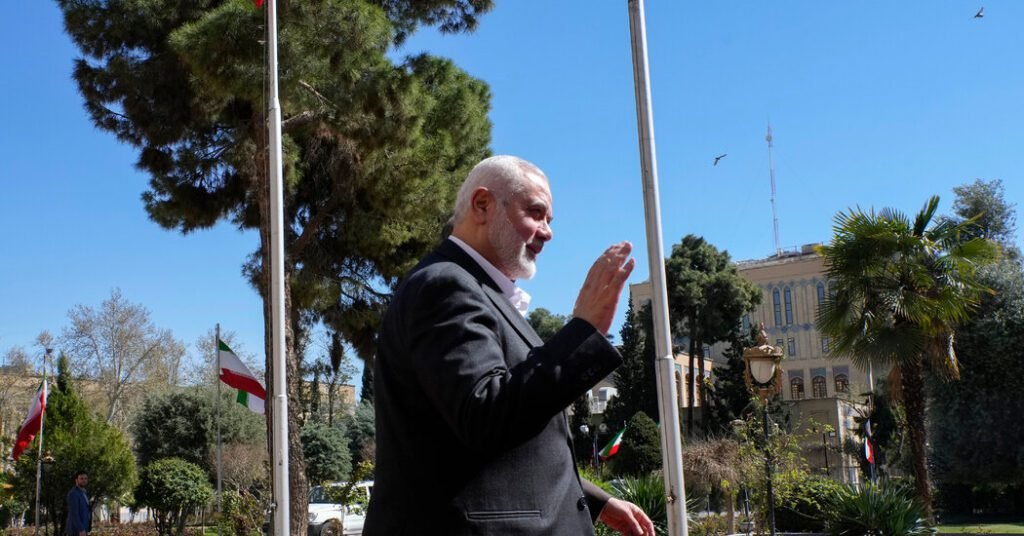Israel’s military announced an expensive operation to kill members of Hamas in Gaza on Thursday, a day after a strike killed relatives of one of the group’s most senior leaders.
Ismail Haniyeh, who leads Hamas’ political wing from exile, said three of his sons were killed in an Israeli airstrike in northern Gaza on Wednesday. Hamas-linked media said three of Mr Haniyeh’s grandchildren were also killed in the attack.
On Thursday, Israel’s military said its forces carried out a “precise, intelligence-led operation” in central Gaza overnight with fighter jets and ground troops to “eliminate terrorists and strike terrorist infrastructure.”
It was not immediately clear whether the operation was related to the strike a day earlier against Mr Haniya’s sons, who the Israeli military said were “on their way to carry out terrorist activities in central Gaza”. He did not elaborate and the military’s claims could not be verified.
The Israeli military said the three sons Haniyeh killed — Amir, Mohammad and Hazem — were active in Hamas military operations, Amir as a cell commander and his brothers as lower-level operatives. One of the brothers was also involved in the hostage-taking, the Israeli military said, without specifying who.
The strike came as international negotiators worked to broker a ceasefire in Gaza and secure the release of hostages held in the enclave. Those talks have stalled over disagreements over details, with a senior Hamas official saying on Wednesday that the group did not have 40 living hostages eligible for exchange under the proposal being discussed.
While Mr. Haniyeh is one of Hamas’ most senior officials, analysts said his sons were less integral to the operation — and that their killings appeared aimed primarily at sending a message to the group’s leadership amid negotiations over ceasefire.
“His son’s names don’t usually come up when you talk about seniority in Hamas, whether it’s the political wing or the military wing,” said Tahani Mustafa, a senior analyst at the International Crisis Group, a think tank.
Ms Mustafa said the timing of the strike made it look like an attempt to derail the talks.
But Bilal Saab, a fellow in the Middle East and North Africa program at Chatham House, said the strike may have been intended to appease the domestic public after six months of war or give Israel leverage in the talks.
“It’s a political victory for Israel more than anything else,” Mr. Saab said, adding: “This was a blow intended to pressure Hamas into making concessions in the hostage negotiations.”
Mr. Haniyeh said on Wednesday that Israel was “delusional if it thinks that by killing my children, we will change our positions” in the negotiations.
Active fighting in Gaza has fallen to its lowest point since November. Israel withdrew troops from southern Gaza over the weekend, but said the army would remain in other parts of Gaza to maintain its “freedom of action and ability to conduct precise operations based on intelligence.”
The military’s stated emphasis on precision comes as international criticism of the war in Gaza intensifies over the mounting Palestinian death toll and warnings of famine.
Israeli Prime Minister Benjamin Netanyahu said a date has been set for a ground invasion of Rafah in southern Gaza, an operation that US officials have warned would be devastating for civilians. Some analysts have argued that his threats are dark or attempts to gain leverage in the ceasefire negotiations.
The Biden administration urged Mr. Netanyahu to abandon invasion plans and focus on “alternative approaches that would target core elements of Hamas.”

